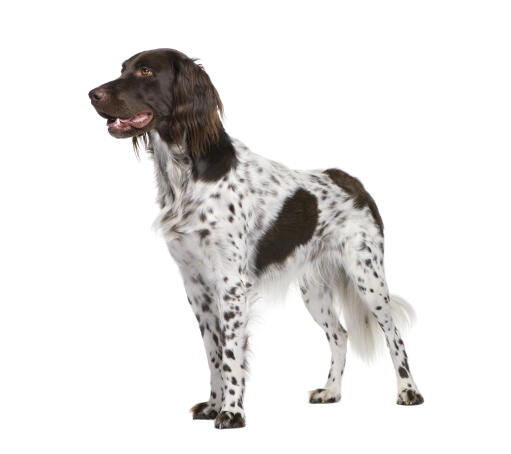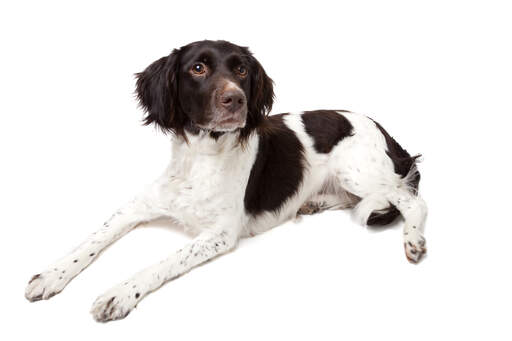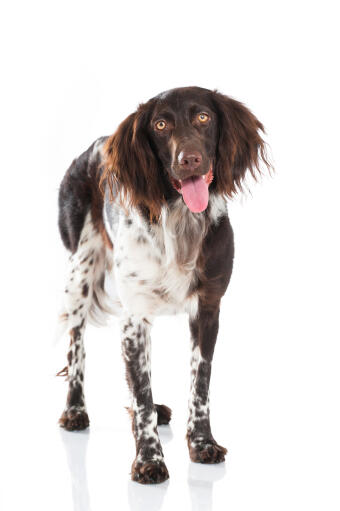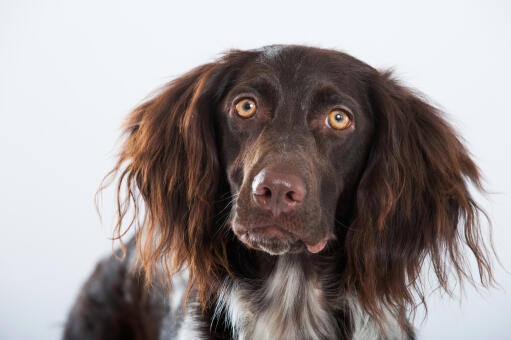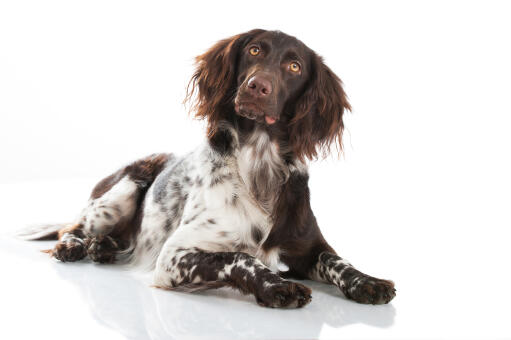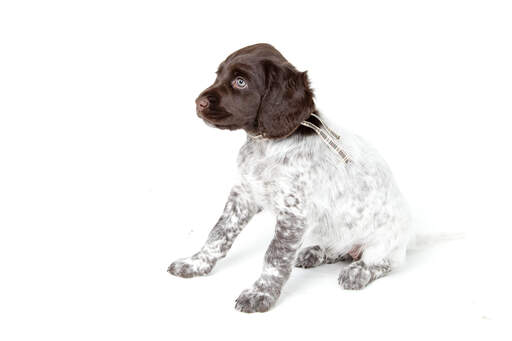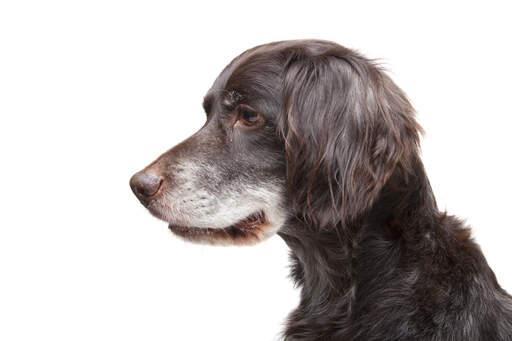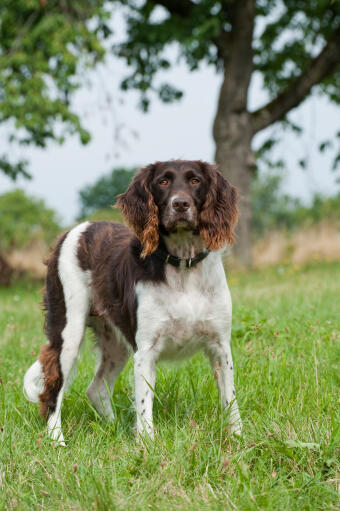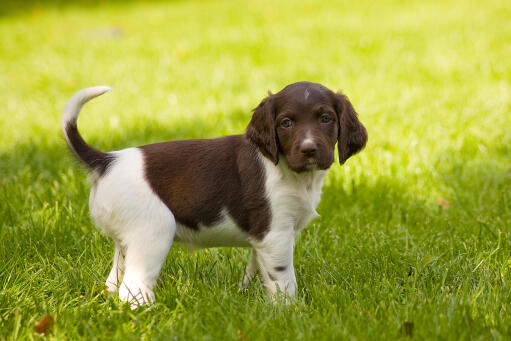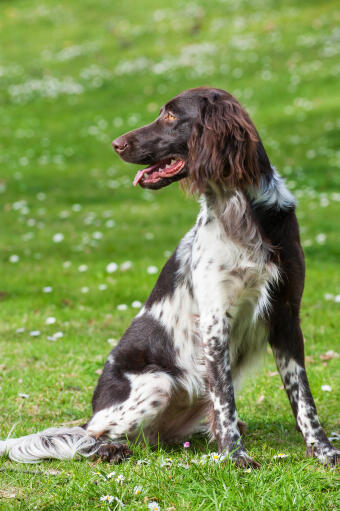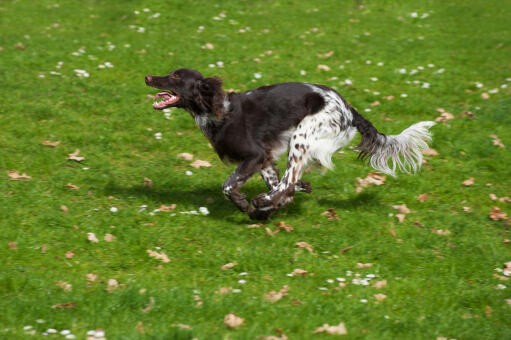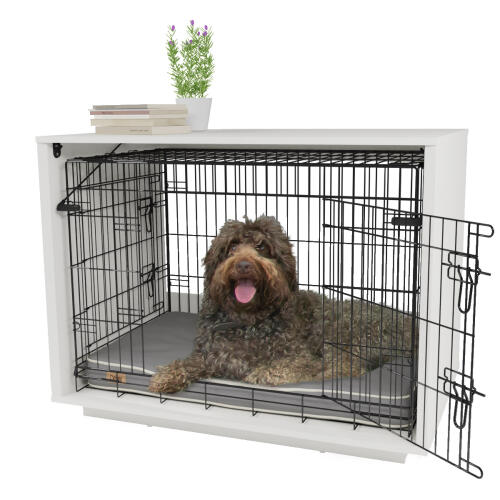Small Munsterlander Dogs











History
As the name would suggest, this breed comes from the Munster of Germany. They were originally kept by elite families and were often used alongside falcons to hunt various types of prey, including grouse, duck, deer and fox. The dog would locate and point to the prey, then the hunter would release the falcon to make the kill. In the early 20th century, the breed was starting to be used by the commoners for hunting and the popularity of this breed quickly rose. Oddly enough, they are not related to the large Munsterlander, but rather share blood with Spaniels and Setters. The breed is thought to be some 500 years old.
Behaviour
The Small Munsterlander, or SM for short, is a kind and affectionate dog who loves nothing more than spending time with their close ones. They dislike being left in a kennel and some can suffer from separation anxiety if left alone for too long. They get along well with children and even other pets, if raised together that is. They will be wary of strangers at first, but will soon accept it. SMs have the tendency to latch onto one member of the family in particular, usually the main trainer. This being said, they are still very loving and will happily cuddle up with any member of the family.
This breed has massive potential when it comes to training, and this should be taken advantage of from a young age. They will respond best to loving, firm, and consistent raining. They soon pick up what you are trying to teach them. Both their pointing and retrieval instincts kick in from a young age. These can be trained to perfection with the help of games. When being trained as working dogs, a combination of voice commands and hand signals are used. They like to keep tabs on you and will often look back at you to check if you are still there. They will seldom wander far from your side. Their prey drive is strong and they need to be taught that not everything is prey. Their recall is excellent.
SM's like to swim and are equally capable in water or on land. They are strong swimmers and a game of fetch with a floating dummy will keep them entertained for hours. They need a fair amount of exercise as this will keep them physically fit and mentally stimulated, but just being outside, with you, will keep them happy. They have masses of energy when out in the field and although well suited as a working dog, they make great additions as a pet to an active family. The key is to let them run and explore; this will tire them out and make sure they are calm indoors. Agility and other competitions also suit the breed.
Their coats will need brushing after most walks in order to remove any debris they may have picked up along the way. The occasional visit to a groomer to trim the feathers will keep your dog looking neat and tidy.
Temperament
Small Münsterländers are intelligent and confident hunting dogs that respond well to hand signals and voice commands alike. This makes the Small Münsterländer a very versatile working dog. They need plenty of mental and physical stimulation in order to be calm around the house. Too little or too inconsistent in training and the Small Münsterländer may become disobedient. They love human company and will usually form a tight bond with whoever takes them out the most.
Health Problems
The Small Munsterlander suffers few health concerns, though they do have a large appetite and will gulp down whatever you give them. Their diets therefore need to be watched to prevent obesity. Their ears need regular cleaning to prevent infections. Mild skin problems are sometimes seen, and there is a risk of ear infection from swimming.
Breed Details
- Status: Common
- Life Expectancy: 12 - 13 years
- Weight: 35 - 60 lbs
- Height: 19 - 22"
- Rare: No
- Coat: Medium
- Grooming Requirements: Once a week
- Town or Country: Country
- Minimum Home Size: Small House
- Minimum Garden Size: Small to Medium Garden
- Breed Type: Gun Dog
- Size: Medium
- Energy Level: Medium
- Exercise Required: Up to 1 hour

